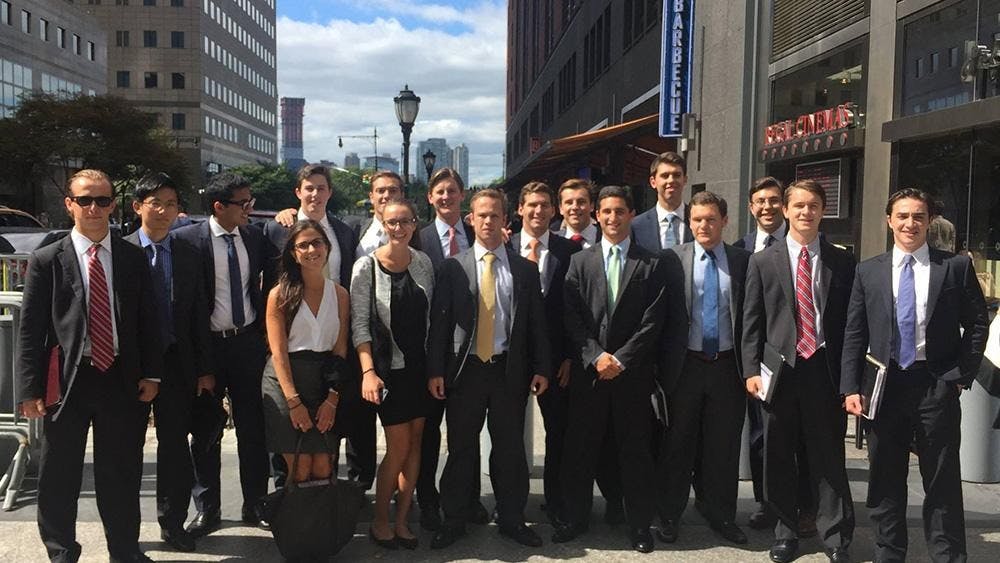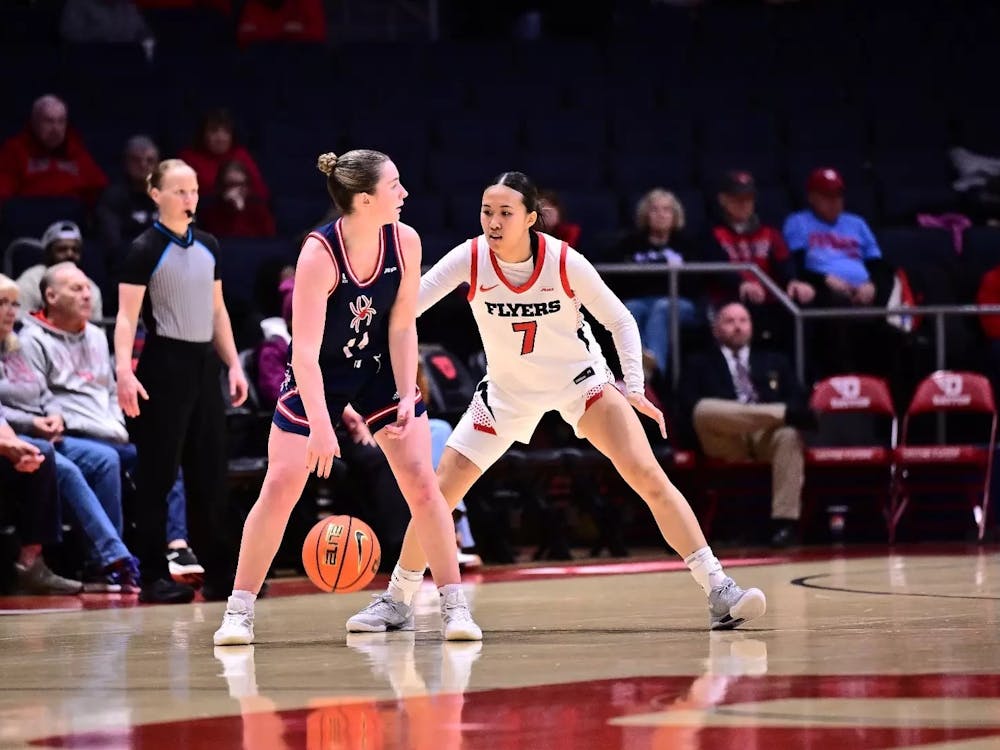The Student Managed Investment Fund, which is currently undergoing the application process for the 2016-2017 academic year, provides students with an interest in finance the opportunity to learn in a real-world setting while investing more than $400,000 of the University of Richmond’s endowment.
In 1993, the notion of experiential learning in finance was starting to become a point of discussion, and faculty fund advisor Jerry Stevens and John Earl founded SMIF, which was one of the first of its kind, with an initial investment of about $100,000. They both wanted to make the program as real as possible, so the student managers not only make the investment decisions, but are also responsible for decisions involving management of the fund from year to year, as Human Resources would do.
Currently the application process is not only based on students’ coursework and GPA, but their ability to conduct and explain the results of an analysis and go through an interview process.
“We tried to make it as close to the way the real world works as we could,” Stevens said.
Stevens, along with Earl, equates the Student Managed Investment Fund, commonly referred to as SMIF, to a lab for students who study chemistry.
“It’s an experiential learning activity,” Stevens said. “We understand in our classrooms a lot of the concepts and theories, but the experiential component is to actually do it in real time, with real data, using the same sources of information that analysts use in Wall Street.”
Stevens stresses, however, that the primary objective is learning.
“We don’t judge the success of the program by the rate of return,” Stevens said. “If they make a mistake, we let them make it and they learn from it.”
Peter Donohue, a Richmond College senior and general manager of SMIF for the 2015-2016 academic year, said the program stood out to him when he toured the university as a high school student.
“The idea of being able to apply what you’ve learned in the classroom to a real world setting with consequences that are muted was something that was really interesting to me,” Donohue said.
SMIF, which is an all equity fund, is composed of a value side and a growth side. The value fund, which is deeply rooted in financial statement analysis, requires student managers to look for and invest in companies that they believe are undervalued and not fully recognized by their stock price. The growth fund consists of stocks that are not necessarily undervalued, but have potential future growth that exceeds the rest of the market and have the ability going forward to generate higher cash flows, Stevens said.
Richmond College senior Jack Clark is currently one of the student managers of the growth fund. Technology companies typically fall on the growth side because there is so much potential for those companies to grow, he said. However, it has been hard to outperform the market this year because there’s been so much volatility, Clark said.
Enjoy what you're reading?
Signup for our newsletter
This year, the managers didn’t believe they had a fundamental understanding of the oil industry and the direction it was moving, so they took themselves out of oil exposure, Donohue said. Similarly, Clark said, energy companies have been doing poorly because of the plummeting oil prices due to a large oil oversupply, so the fund avoided them.
The managers said they were not allowed to talk about which specific companies they invest in or how well their investment strategy is doing, per request of their advisors.
There are currently 17 student managers – eight of whom are concerned with the value fund, and eight who manage the growth fund, in addition to Donohue, who oversees both of the funds and acts as a liaison between the student managers and faculty and alumni. The managers meet once a week all together, then the growth and value sides meet separately.
In a typical meeting, the managers begin by recapping what has happened throughout the past week in the market and take a look at the portfolio, Donohue said. They take a top-down investment approach, which is essentially looking at the macroeconomic landscape to see what has changed and if that change has resulted in a change in their investment thesis, he said.
“Unless something really drastic earnings-based or on a macroeconomic level has changed,” Donohue said, “we really don’t like to jump out of a company based off one piece of news.”
Donohue said that the current managers have made a lot of changes this year, mostly due to the rocky nature of the U.S. markets during the summer and in the month of December.
“I think in a lot of ways you learn a lot more when things are tough than when things are going well,” he said. “It forced us to learn on a much deeper level.”
Contact reporter Jessie Bursma at jessie.bursa@richmond.edu.
Support independent student media
You can make a tax-deductible donation by clicking the button below, which takes you to our secure PayPal account. The page is set up to receive contributions in whatever amount you designate. We look forward to using the money we raise to further our mission of providing honest and accurate information to students, faculty, staff, alumni and others in the general public.
Donate Now



